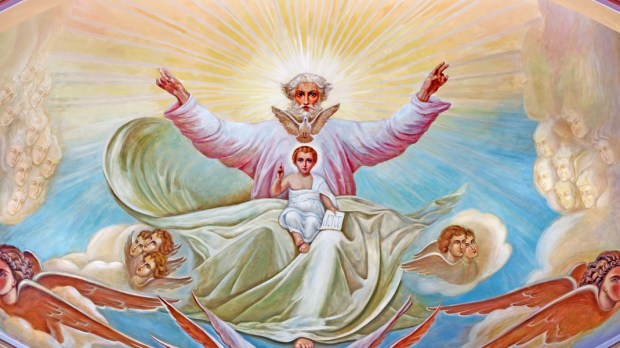It’s tempting to think of God as a “God-in-the-clouds.” In other words, God is not present, here and now, but somewhere far off, and will come again when he is bored with us, humans.
However, Advent reminds us that God is a God of the “present,” and will not only come in the future, but is already here!
Pope Benedict XVI recalled this central spiritual theme in a homily in 2006.
At the beginning of a new yearly cycle, the liturgy invites the Church to renew her proclamation to all the peoples and sums it up in two words “God comes”. These words, so concise, contain an ever new evocative power.Let us pause a moment to reflect: it is not used in the past tense – God has come, – nor in the future – God will come, – but in the present: “God comes”.
When we think of God as a God who will come in the future, its tempting to relax our practice of the faith and put off changing our bad habits until the perpetual “tomorrow.”
We might say to ourselves, “I will stop yelling at my children…tomorrow!” Simply fill in the sentence with whatever “pet sin” we might have and it doesn’t take long to see how our spiritual life is perpetually put on hold.
However, Pope Benedict urges us to see God as one who comes now and is intensely interested in our lives.
Advent calls believers to become aware of this truth and to act accordingly. It rings out as a salutary appeal in the days, weeks and months that repeat: Awaken! Remember that God comes! Not yesterday, not tomorrow, but today, now!The one true God, “the God of Abraham, Isaac and Jacob”, is not a God who is there in Heaven, unconcerned with us and our history, but he is the-God-who-comes.
This reality should alert us and awaken in us a need to reform our lives today, not tomorrow!
Think about how you would scramble to get your house in order if you heard that Jesus was coming to your house, today!
Let us strive to live each day with the knowledge that God is here, now and is knocking at our door this very second.
Open the door!
Read more:
Is it possible to live in the present moment?

Read more:
In Advent, why are we waiting for something that already happened?

